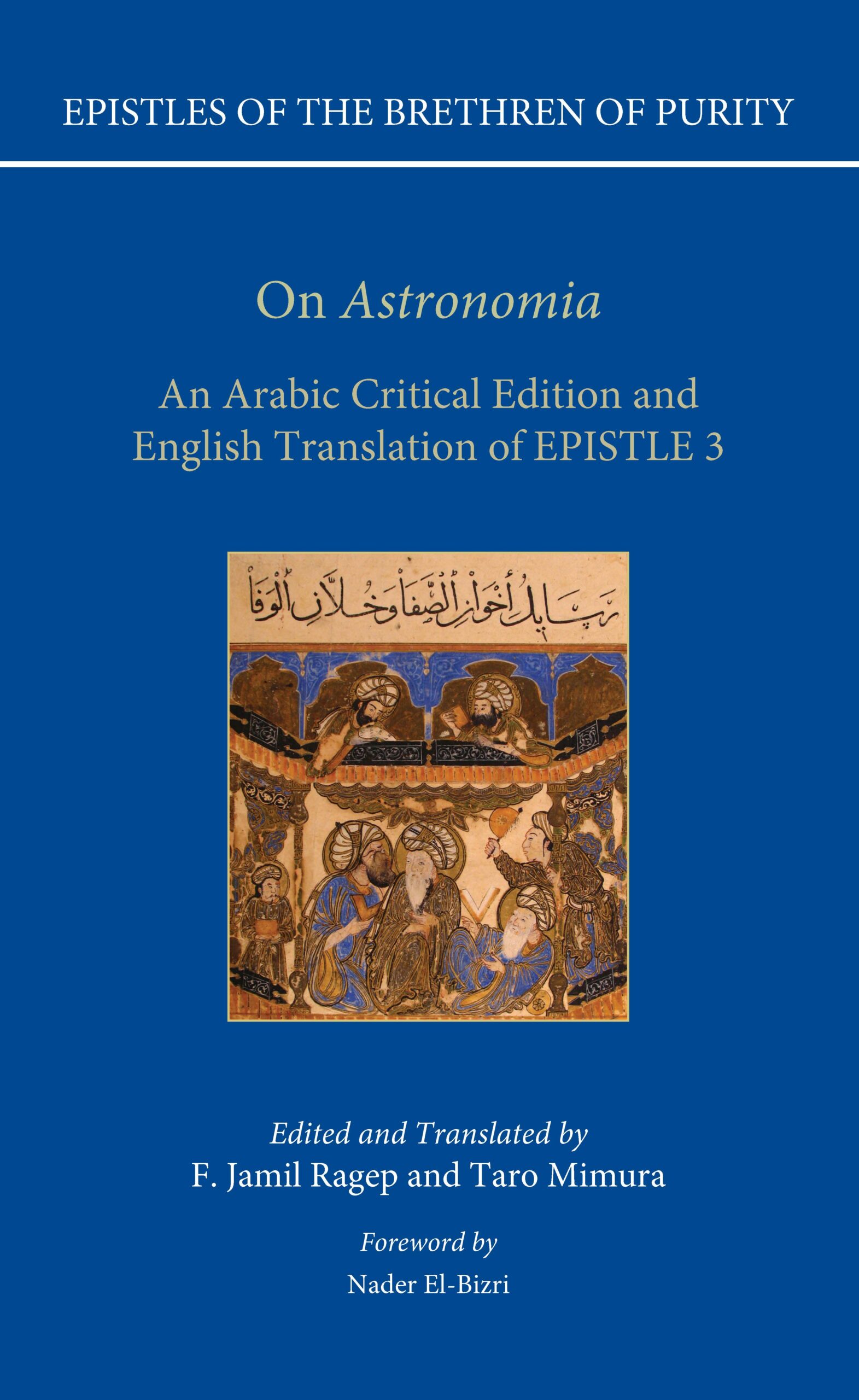The Ikhwān al-ṢafāʾFrom Arabic, lit. ‘Brethren of Purity’, a group of learned scholars who were based in Basra and Baghdad around the last quarter of the t10th century CE. It is more… (Brethren of Purity), the anonymous adepts of a tenth-century esoteric fraternity based in Basra and Baghdad, hold an eminent position in the history of science and philosophy in Islam due to the wide reception and assimilation of their monumental encyclopaedia, the Rasāʾil Ikhwān al-Ṣafāʾ (Epistles of the Brethren of Purity). This compendium contains fifty-two epistles offering synoptic accounts of the classical sciences and philosophies of the age; divided into four classificatory parts, it treats themes in mathematics, logic, natural philosophy, psychology, metaphysics, and theology, in addition to didactic fables.
This volume provides an edition, translation, and notes to Epistle 3: ‘On Astronomia’, from the section on Mathematics. The content is a mixture of elementary astronomy and astrology, but it is not a beginner’s textbook; rather, the purpose is to use these disciplines for spiritual, moral, and soteriological guidance. Thus the Epistle uses the argument from design to show the necessity of a Creator who made this harmonious universe; the wondrous design is then employed by the authors as a paradigm for proper ethical, political, and even economic conduct.
By no means typical of Islamic astronomical literature, Epistle 3 reveals a fascinating group operating during the early period of Islam, who sought to continue one of the esoteric strands of Hellenistic philosophy within an Islamic context, meshing astronomy, astrology, Platonic–Pythagorean philosophy, Qur’anic and Biblical quotations, and anecdotes from the lives of the Abrahamic prophets.
Acknowledgements
Foreword
Introduction
Epistle 3: On Astronomia
Appendices
A. Additional Chapters from Two MSS (Arabic)
B. Additional Chapters from Two MSS (English)
C. Figure Apparatus
D. Concordance of MSS
E. Glossary
Bibliography
Subject Index
Index Locorum
Risāla 3 (Arabic Text & Variants)
Arabic Index
‘On Astronomia is another milestone along the road, begun some years ago by the Institute of Ismaili Studies under the general editorship of Nader El-Bizri, towards the complete edition and translation of the Epistles . . . Ragep and Mimura have chosen the best manuscript of the 19 they reviewed and have carefully compared it with 7 others. All in all, the Arabic text that the editors present is a substantial improvement on previous editions of this epistle. The careful translation is complemented with footnotes which the authors have kept to a minimum but are nonetheless sufficient.’
– Journal for the History of Astronomy
F. Jamil Ragep is Canada Research Chair in the History of Science in Islamic Societies and Director of the Institute of Islamic Studies (2008–2015) at McGill University in Montreal, Canada. Educated at the University of Michigan and Harvard University, he has written extensively on the history of astronomy, science in Islam, science and religion, and the intercultural transmission of science. He is currently leading an international effort to catalogue all Islamic manuscripts in the exact sciences and is co-directing a project to study the fifteenth-century background to the Copernican revolution.
Taro Mimura is a research associate on the ‘Arabic Commentaries on the Hippocratic Aphorisms’ project at the University of Manchester. He obtained his PhD in History of Science from the University of Tokyo in 2008. The title of his PhD thesis was ‘The Raison d’être of Classical Greek Scholarship in the Abbasid Dynasty from a Viewpoint of the Development of the Demonstrative Sciences’. From 2009 to 2012, he was a research assistant at the Institute of Islamic Studies at McGill University, Canada, where he worked as an editor on the ‘Scientific Traditions in Islamic Societies’ project, a subsection of the ‘Rational Sciences in Islam’ project. He is currently working on an edition of the Arabic original of pseudo-Māshāʾallāh’s Liber de orbe.

